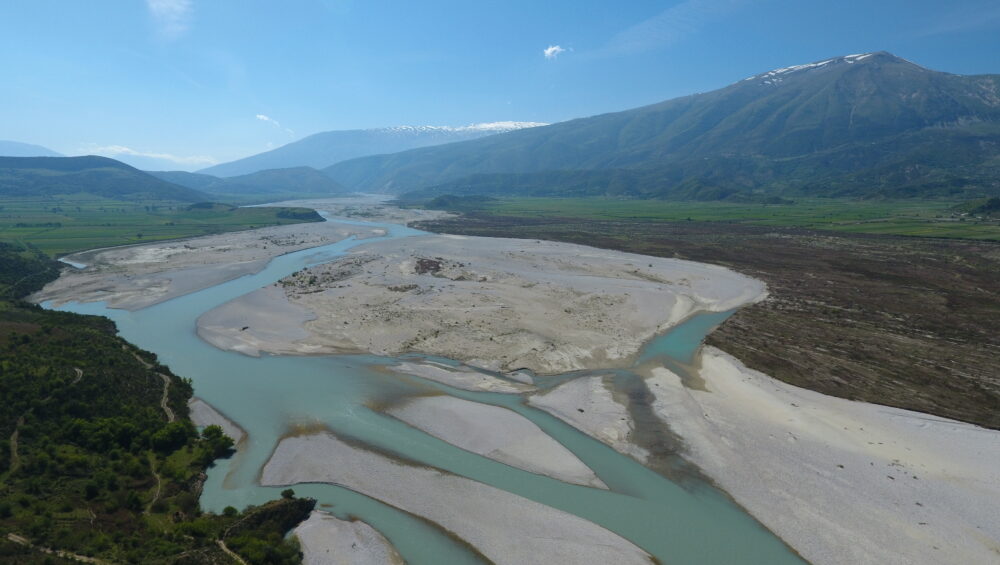In September 2025, Vjosa River was officially recognised as a UNESCO “Man and the Biosphere” (MAB) Reserve, during the World Congress of Biosphere Reserves in China. We acknowledge and welcome the designation of the Vjosa River as part of UNESCO’s MAB Programme. This recognition further highlights the exceptional ecological and cultural value of the Vjosa and its surrounding landscape, reinforcing the global importance of protecting it.
The MAB designation serves as an additional reminder of shared responsibility both for Albania’s decision-makers and for the International Coordinating Council (MAB-ICC), also known as the MAB Council. While it brings international visibility, it also comes with expectations for rigorous follow-up and effective management. This status must not be taken simply for its prestige or name, but as a commitment to ensure the Vjosa remains a living, thriving ecosystem. That requires addressing the concrete threats like water abstraction, oil spills, gravel extraction and waste management that continue to harm the Vjosa basin, many of which are located precisely in the newly recognised MAB area.
While the UNESCO MAB designation does not introduce new legal instruments, it provides an internationally recognised framework with three zones, each with different functions and permitted uses. The core zone, legally constituted under national law and, in this case, coinciding with the Vjosa Wild River National Park, receives the highest level of protection. The surrounding buffer zone permits only activities compatible with conservation, including research, monitoring, training, and education, while the outer transition area promotes sustainable development. Together, the national park and the MAB Biosphere Reserve reinforce the obligation to safeguard the Vjosa and its tributaries through concrete, measurable action on the ground.
The task ahead is clear: the management body of the Vjosa Wild River National Park, in collaboration with the relevant authorities, must propose concrete, transparent, and effective measures to address the threats that compromise the river’s integrity within the boundaries of the national park. In addition, it needs to be defined which entity is responsible for managing the MAB. This could be the existing national park authority or an additional body, as is the case in many other countries and MABs, to ensure sufficient capacities. Only then can the Vjosa truly benefit from the visibility that comes with the MAB designation.
For over a decade, local communities, civil society, and scientists have been fighting for the protection of this unique river system. Today’s recognition can support that goal, but it will only have meaning if it translates into real improvements on the ground. Our organisations remain committed to ensuring that both the National Park and the MAB designation are used as tools to strengthen protection, not as excuses to rest on symbolic achievements.







